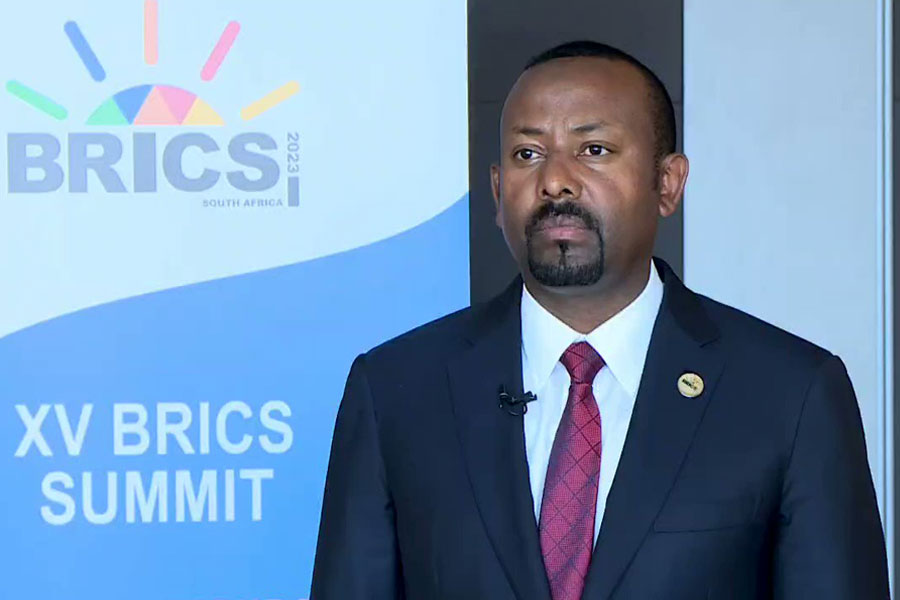
Radar | Apr 12,2020
Sep 4 , 2021
By Shewangezaw Seyoum
Public and private organisations are usually busy announcing training bids for their employees. The issue of human resources training and development is becoming increasingly important in Ethiopia and the world over. That is because the knowledge and skills of employees are becoming the essential assets of an organisation. No one is taking them for granted anymore.
The level of knowledge and skills of employees that in turn determine productivity are considered competitive factors. They offer a comparative advantage and are the key area for organisations and nations at large. It is understood as a determining factor of success and prosperity.
Against this fact, it has been widely studied that one of the reasons for the poor growth of the private sector and lack of economic competitiveness in Ethiopia is low labour productivity. This is not in comparison to the likes of Germany or South Korea. Ethiopia's lack of knowledge and skills is still stunted even relative to the likes of Vietnam and Bangladesh, or even Myanmar, Tanzania, and Kenya. The skill deficit is evident from how poorly institutions are run and their lack of competitiveness compared to their counterparts in other countries.
While recognising that there are also many other factors affecting productivity, raising skill levels in Ethiopia’s entire workforce, including the self-employed and informal workers, is critical. New skills are needed for productivity to grow improvement. In this sense, training can help. However, it is not just any training that does the job.
The training and human resource development practice of Ethiopian organisations leaves much to be desired. Often, they have no clear training and development policy or even a responsible and dedicated department to carry it out. Most human resources departments exist to ensure that salaries are paid on time and spend much of their time mediating between bickering employees. Training programmes are conducted without sufficient need analysis, and their impact may not be evaluated.
Proper curriculum development is also lacking. This is best illustrated by the generic training programmes of trainer institutions with duplication between one another. Trainer selection is often arbitrary. This gives rise to less effort being exerted by the trainers to improve themselves from time to time.
Neither is the method of training up to the times. Adherence to traditional training strategies is disconcerting when scientific advances and technological innovation are revolutionising the personal and professional development industry in the rest of the world. It makes getting feedback hard, resulting in one-way traffic in training conduct. The support among colleagues to apply the skills and knowledge to work is not there, and the effort of trainees themselves to transfer knowledge and skills into real work and job situations is minimal.
Little wonder then that these pieces of training do not add much value and their contribution to productivity improvement is doubtful.
The reasons behind these weaknesses are a lack of strategic thinking and focus towards key human resource development parameters such as coaching, career development, performance management and reward mechanisms. Underpinning these is the inadequacy of training and development to the top management, inhibiting leadership and taking the rest of the organisation with them.
Training and human resource developments are too significant to be left to chance to work. Implementing competency-building endeavours, strengthening the human resource department of the organisations, enhancing staff motivation and creating opportunities for advancement are needed. However, it is necessary to identify the opportunities for productivity improvement and successfully implement the agreed-upon changes. Management skills are crucial to this and it must establish a generation of managers who feel confident bringing about continuous productivity improvements.
PUBLISHED ON
Sep 04,2021 [ VOL
22 , NO
1114]


Radar | Apr 12,2020

Radar | Oct 19,2019

Viewpoints | Apr 13,2019

Commentaries | May 11,2019

Commentaries | Oct 12,2019

Commentaries | Jun 03,2023

Obituary | Oct 17,2020

Commentaries | Jun 08,2019

Radar | Aug 26,2023

Fortune News | Oct 05,2025

Photo Gallery | 170176 Views | May 06,2019

Photo Gallery | 160420 Views | Apr 26,2019

Photo Gallery | 150033 Views | Oct 06,2021

My Opinion | 136226 Views | Aug 14,2021





Dec 22 , 2024 . By TIZITA SHEWAFERAW
Charged with transforming colossal state-owned enterprises into modern and competitiv...

Aug 18 , 2024 . By AKSAH ITALO
Although predictable Yonas Zerihun's job in the ride-hailing service is not immune to...

Jul 28 , 2024 . By TIZITA SHEWAFERAW
Unhabitual, perhaps too many, Samuel Gebreyohannes, 38, used to occasionally enjoy a couple of beers at breakfast. However, he recently swit...

Jul 13 , 2024 . By AKSAH ITALO
Investors who rely on tractors, trucks, and field vehicles for commuting, transporting commodities, and f...

Oct 4 , 2025
Eyob Tekalegn (PhD) had been in the Governor's chair for only weeks when, on Septembe...

Sep 27 , 2025
Four years into an experiment with “shock therapy” in education, the national moo...

Sep 20 , 2025
Getachew Reda's return to the national stage was always going to stir attention. Once...

Sep 13 , 2025
At its launch in Nairobi two years ago, the Africa Climate Summit was billed as the f...

Oct 5 , 2025 . By NAHOM AYELE
In Meqelle, a name long associated with industrial grit and regional pride is undergo...

Oct 5 , 2025 . By BEZAWIT HULUAGER
The federal government is set to roll out a new "motor vehicle circulation tax" in th...

Oct 5 , 2025 . By NAHOM AYELE
The Bank of Abyssinia is wrestling with the loss of a prime plot of land once leased...

Oct 5 , 2025 . By BEZAWIT HULUAGER
The Customs Commission has introduced new tariffs on a wide range of imported goods i...